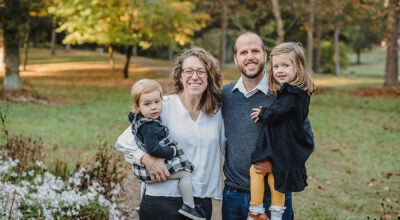NC House Republicans lay out voter ID bill process
Published 12:00 am Wednesday, March 6, 2013
RALEIGH (AP) — North Carolina’s House Republican leaders said Tuesday that public input would be gathered from all sides as they promised a fair and measured process of creating a bill that would require photo identification for citizens to vote.
Kicking off a debate certain to be dipped in partisanship and racial divisions, GOP legislators said they would hold public hearings and other committee meetings — the first scheduled for Wednesday — before actual legislation rolls out around the end of the month. The full House is likely to vote on the proposal by mid-April, they said, before it goes to the Senate.
The House leaders said they wanted to hear from people who both support and oppose a photo ID requirement in an attempt to make it better and ensure people that don’t currently have an identification card to obtain one for free.
“We’re going to go through a very deliberative, responsible and interactive approach … so that we arrive at a policy that is fair, that takes into account legitimate reasons why voters may not have an ID and to place a solution — a way that those IDs can be issued,” House Speaker Thom Tillis, R-Mecklenburg, said at a news conference.
House and Senate Republicans pushed through the General Assembly a photo ID requirement in 2011. But it was vetoed by Democratic Gov. Beverly Perdue and GOP legislators lacked the votes to override the veto.
Current GOP Gov. Pat McCrory supports voter ID, reaffirming Tuesday at a news conference that he prefers one with a photo requirement but could listen to other options. The support in the legislative and executive branches leaves largely the question of how the details will look, and whether it can withstand legal challenges and gain approval from federal attorneys or the courts under the Voting Rights Act.
McCrory and other Republicans contend requiring IDs will discourage fraudulent voting. They likened it to showing licenses to enter government buildings, get on an airplane or purchase certain cold medicine. An Elon University Poll released Monday showed 72 percent of those surveyed support a law to require government-approved photo identification to vote.
“Requiring an ID to vote is a commonsense practice,” McCrory said at the Executive Mansion during a news conference following a meeting with big-city mayors. “I’m going to let the legislature debate the details on that.”
Rep. David Lewis, R-Harnett, chairman of the House Elections Committee, had few details about what voter ID legislation would look like except that it probably would include an aggressive effort to get photo identifications to people who don’t have them free of charge.
It’s unclear how many people don’t have photo IDs or how much it would cost the state to provide them. An analysis earlier this year by the State Board of Elections matching voter rolls with Division of Motor Vehicles records shows the names of 613,000 registered voters may not match with driver’s licenses or photo IDs issued by the DMV. The actual number of people without photo IDs is likely much less.
Lewis said some members and organizations are going to oppose voter ID on principle but he still wants recommendations from opponents to “make this the best bill it can be.”
Most Democrats this week remains obstinately opposed to any voter ID measure they said would take back voting rights secured a half-century ago during the civil rights movement. State Democratic Party Chairman Randy Voller referred to voter ID on Monday as “the specter of Jim Crow.”
Talk by Republicans of deliberateness is “a sales pitch that they’re out there pushing right now that they think making it look fair, it will become fair,” Rep. Mickey Michaux, D-Durham, said at a news conference by the Legislative Black Caucus.
The ID requirement would discourage the poor, older adults and minorities from voting because they are more likely to not have an ID card, opponents say. Potential voters already must show identification papers of some kind when they register, and people can face a felony conviction if they vote illegally.
Sen. Floyd McKissick, D-Durham, said the requirement would hurt disproportionately people who aren’t registered Republicans. The GOP goal, he added, is “to repress that vote by any means necessary.”
Bob Hall, executive director of the election reform group Democracy North Carolina, continues to oppose a photo ID requirement but acknowledged in a prepared statement the political reality at the Legislative Building.
“We also recognize that the ID advocates have the votes to pass a bill,” Hall said. “We accept their invitation to be at the table and offer positive suggestions.”





